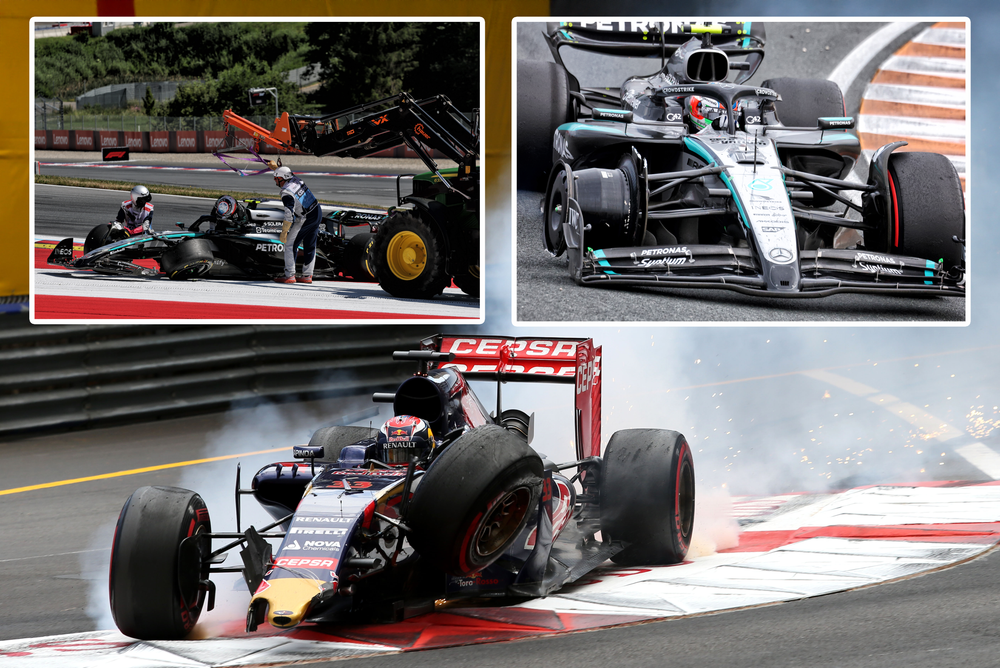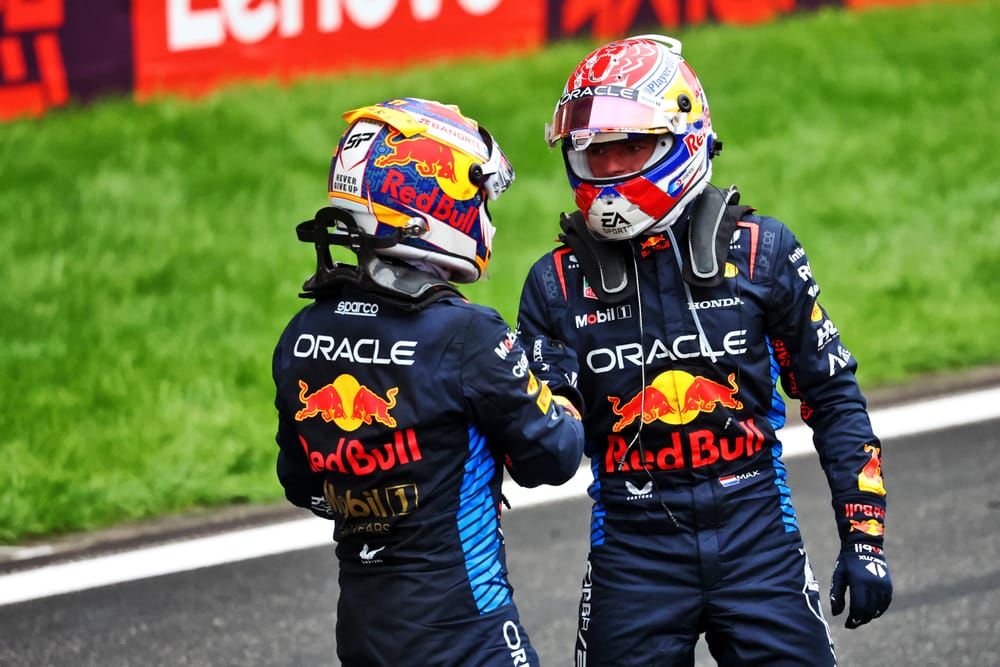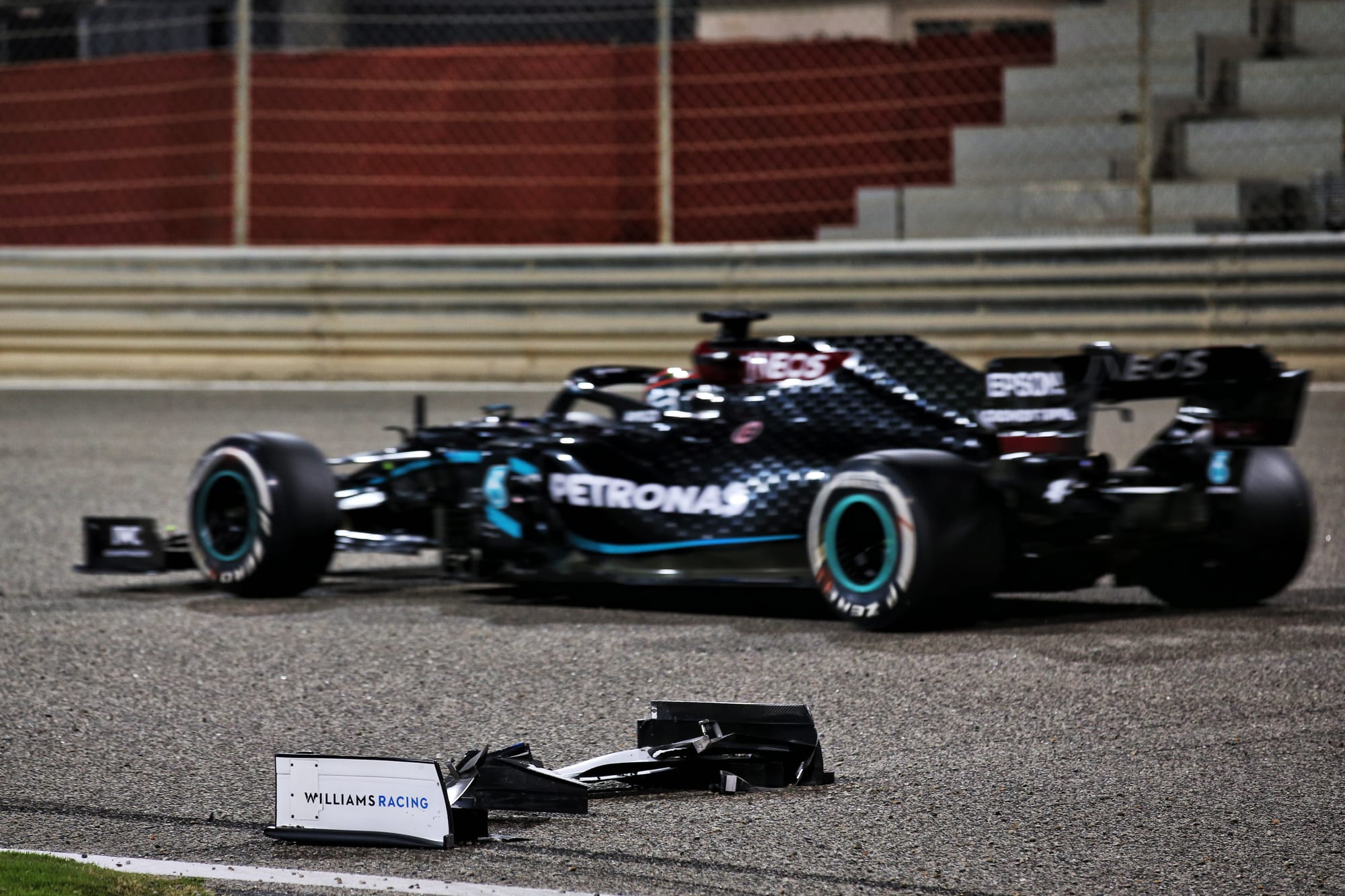Every rookie season features its ups and downs - that’s a natural part of the learning process for any driver that reaches Formula 1 - but Mercedes is finding itself repeatedly leaping to the defence of its protege Kimi Antonelli following a consecutive run of particularly challenging races.
After the latest one of those, a Dutch Grand Prix weekend in which Antonelli gave himself a mountain to climb by beaching his car in the gravel in first practice, then scaled that mountain pretty well to be racing Charles Leclerc’s Ferrari for fifth, before undoing all that good work by driving into it, Mercedes’ boss Toto Wolff was at it again.
Amid some of the more familiar statements about this sort of setback being expected, that Antonelli was only 18 (now 19), just a kid, has enormous potential that the team trusts and is just waiting to unlock consistently, in a car less capricious and more competitive than the one he’s driving now, there was an especially interesting comparison Wolff drew with Max Verstappen’s rookie F1 season 10 years ago.
“All the big ones make mistakes,” Wolff said, when asked whether Antonelli’s Zandvoort performance would be acceptable in 2026, after his “year of learning”, as Wolff calls it, would be behind him.
“It’s difficult to compare now, because Max was given a different environment in Toro Rosso at the beginning, but there were also some moments where you said, ‘well, that was a big mistake’, you know?
“And Kimi, 18-years-old, thrown in this mammoth of a team representing Mercedes - he's going to make mistakes.
“Hopefully less mistakes next year and score bigger points, but my 100% belief is in him in the long term.”
Wolff has already created trouble for himself by hailing Antonelli as the ‘next Verstappen’ even before he turned a wheel in an F1 car in preparation to replace Lewis Hamilton, so perhaps it was unwise to dip into the Verstappen comparison well for a second time, but let’s see if Wolff’s claim about Verstappen’s “big mistakes” really stacks up.
A question of perception
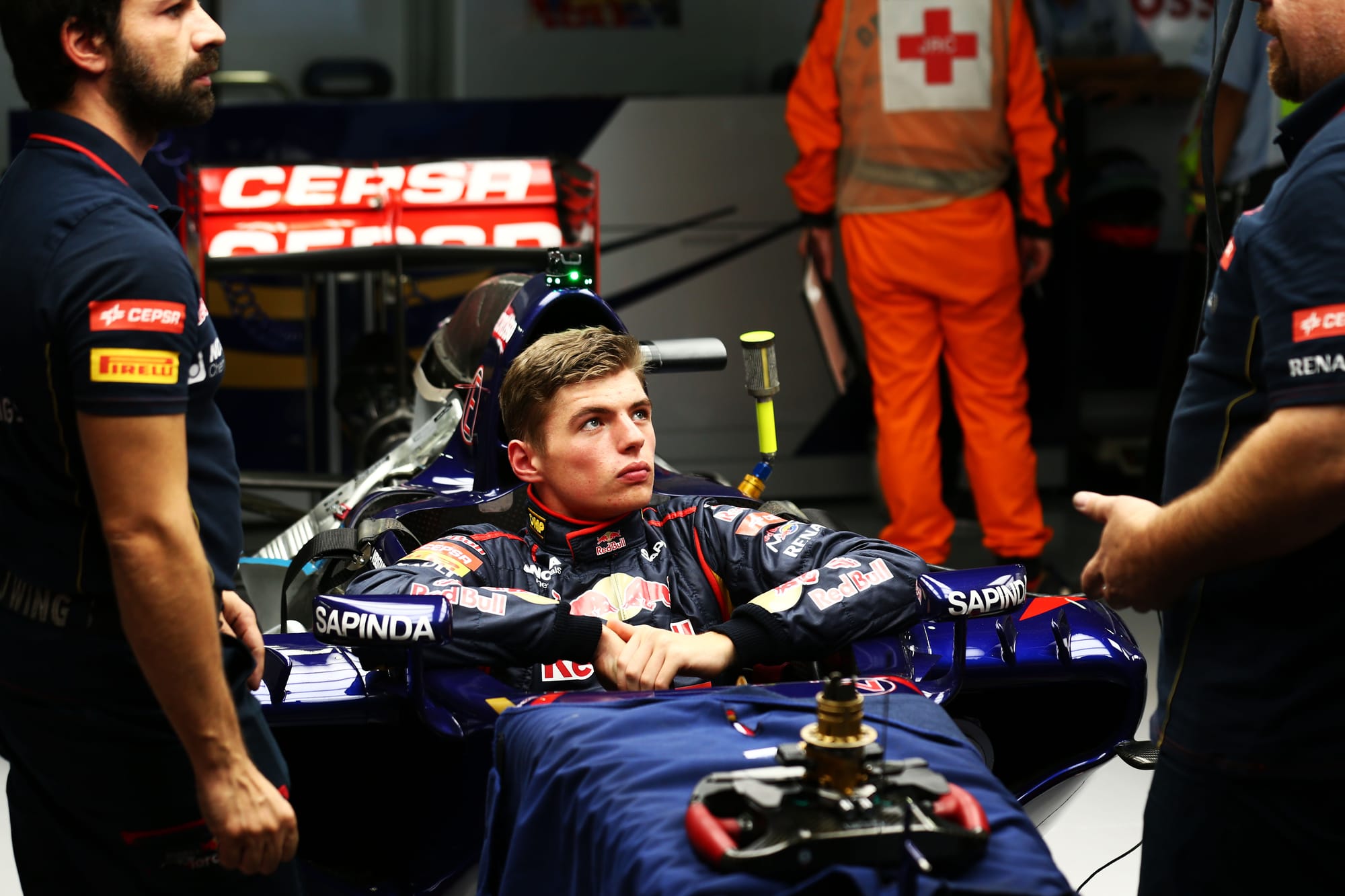
Before the term ‘Testing of Previous Cars’ was a common phrase, Verstappen’s opportunities to test F1 machinery before his debut season were fairly limited.
He did a day of running at Adria in a 2012 Toro Rosso to gain his F1 superlicence as a 16-year-old, before making his F1 weekend debut at Suzuka (above) for Toro Rosso at the 2014 Japanese Grand Prix, aged 17.
Verstappen was impressive, lapping 12th quickest out of 22 cars and 0.443 seconds slower than regular race driver Daniil Kvyat. Two further FP1 outings - at Austin and Interlagos - preceded two days of testing at the post-Abu Dhabi GP end-of-season test.
He also didn’t make any serious mistakes, and by the third of those free practice sessions, in Brazil, was lapping inside the top six and just a tenth shy of Kvyat.
Antonelli’s 2024 opportunities in ‘current’ cars were more limited - just the two rookie FP1 sessions and a single day of testing in Abu Dhabi. But he enjoyed a much more comprehensive TPC programme around that.
Of course Antonelli’s FP1 debut for Mercedes is remembered for all the wrong reasons, because he crashed heavily at Monza, his home grand prix. It was the worst start possible - pushing too hard, too soon and misjudging the available grip.
He did a much cleaner job next time out in Mexico, taking his time and building up carefully in the way he should have done at Monza, but in a session in which his team-mate George Russell set the pace, Antonelli was only 12th, 1.2s off.
So immediately we have a challenge of perception. Not only was Verstappen a teenager breaking ground that subsequent teenagers have not been allowed by the FIA to tread at his tender age, he also made an immediate positive impression with his mature performance in Suzuka. And by the time of his third appearance, was near as dammit on the pace of his team-mate.
Antonelli suffers from what happened at Monza, and arguably is still suffering in the sense it has forced him to change his approach inside the car and suppress his natural instinct to throw caution to the wind and just go for it.
Wolff’s caveat about it being difficult to compare is important to bear in mind, because not only were their preparations different, the cars of today around Suzuka are some five-six seconds a lap quicker than they were in 2014.
It’s also probably fair to say Antonelli was compared to a higher benchmark than Verstappen was at this stage. Not many would claim a rookie Kvyat to be superior to a current-spec George Russell.
What were Verstappen's 'big mistakes'?
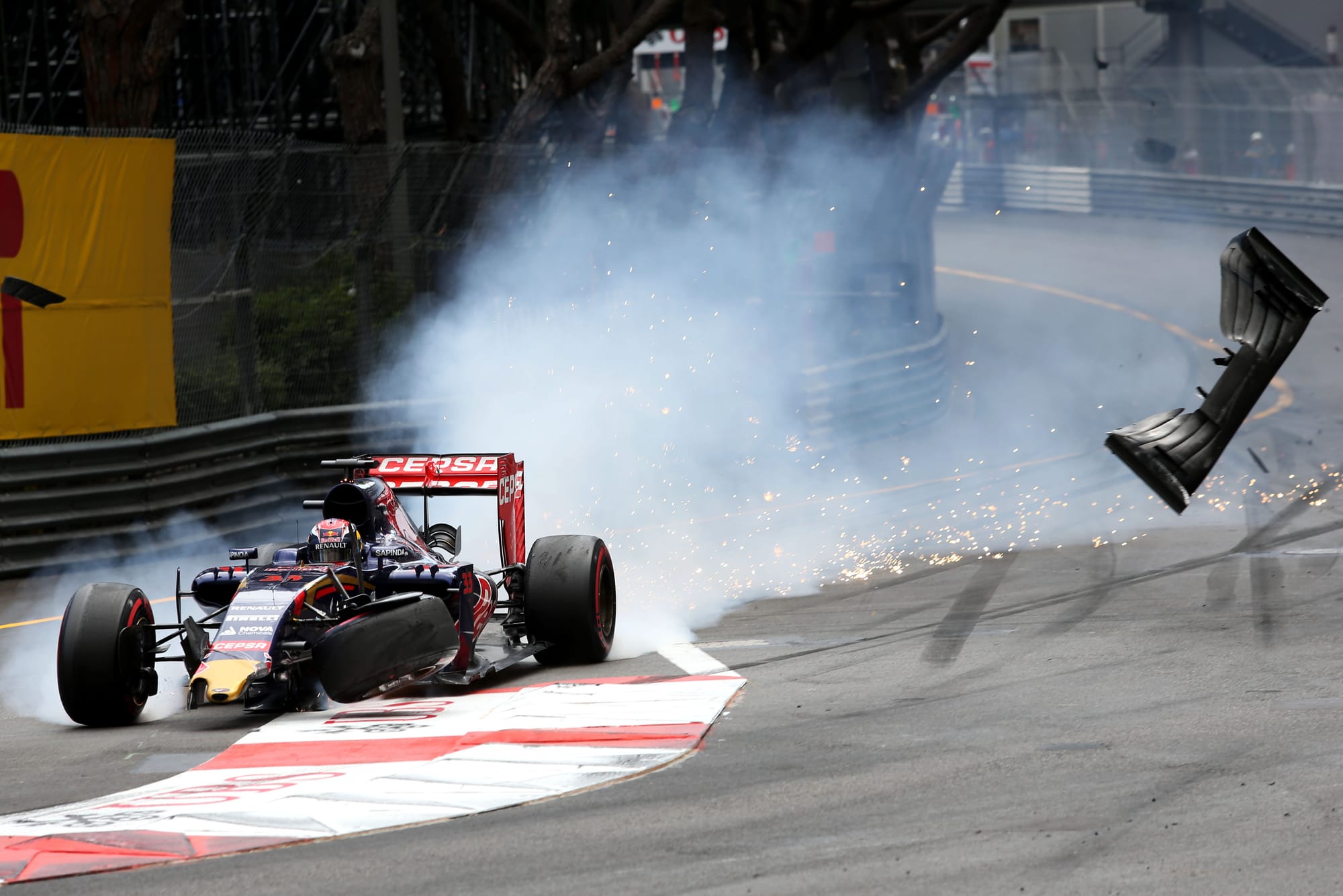
There were certainly some, but not many. Over the first nine in what back then was a 19-race season, Verstappen messed up badly in two of them: Monaco and Silverstone, where he crashed out.
Monaco was more high-profile, because he careered into Romain Grosjean’s Lotus at Ste Devote, suffered a spectacular impact with the barriers and copped a five-place grid penalty. At Silverstone, he simply went off on cold tyres on a windy circuit after a restart.
In the second half of that season there wasn’t much else to report in terms of major incidents.
Verstappen was caught up in a first-lap mess at the Russian GP - but that was more to do with Nico Hulkenberg’s Force India spinning in front of him than anything Max did wrong.
And in Abu Dhabi he locked both front wheels under braking for one of the chicanes, causing “massive flat spots” to both tyres, which undid his race.
But that’s it really. You’re basically talking about one silly crash at Silverstone on his own, and one sillier crash at Monaco where he wiped out another car.
The overwhelming impression Verstappen gave in that season was that he absolutely belonged in F1, despite only being 17/18. And some of his performances were exceptional too: top six on the grid and points in only his second race, in Malaysia; finishing fourth in Hungary, and again in a wet/dry US GP - in a midfield car.
And footage of his incredible round-the-outside overtake on Felipe Nasr’s Sauber through Blanchimont at Spa sits in F1 TV’s archive as one of Formula 1's ‘classic overtakes’.
🗣️ "It's bold. It's brave. It's beautiful!"
— Formula 1 (@F1) July 21, 2025
Looking back at how Max Verstappen pulled off this daring move around the outside of Felipe Nasr at Blanchimont in 2015... 👏💨#F1 #BelgianGP pic.twitter.com/YRnkRPylqZ
There were mistakes, sure, but not many big ones - and certainly not ones that gave you pause for thought, or made you think Red Bull had made a mistake.
Antonelli's impossible act(s) to follow
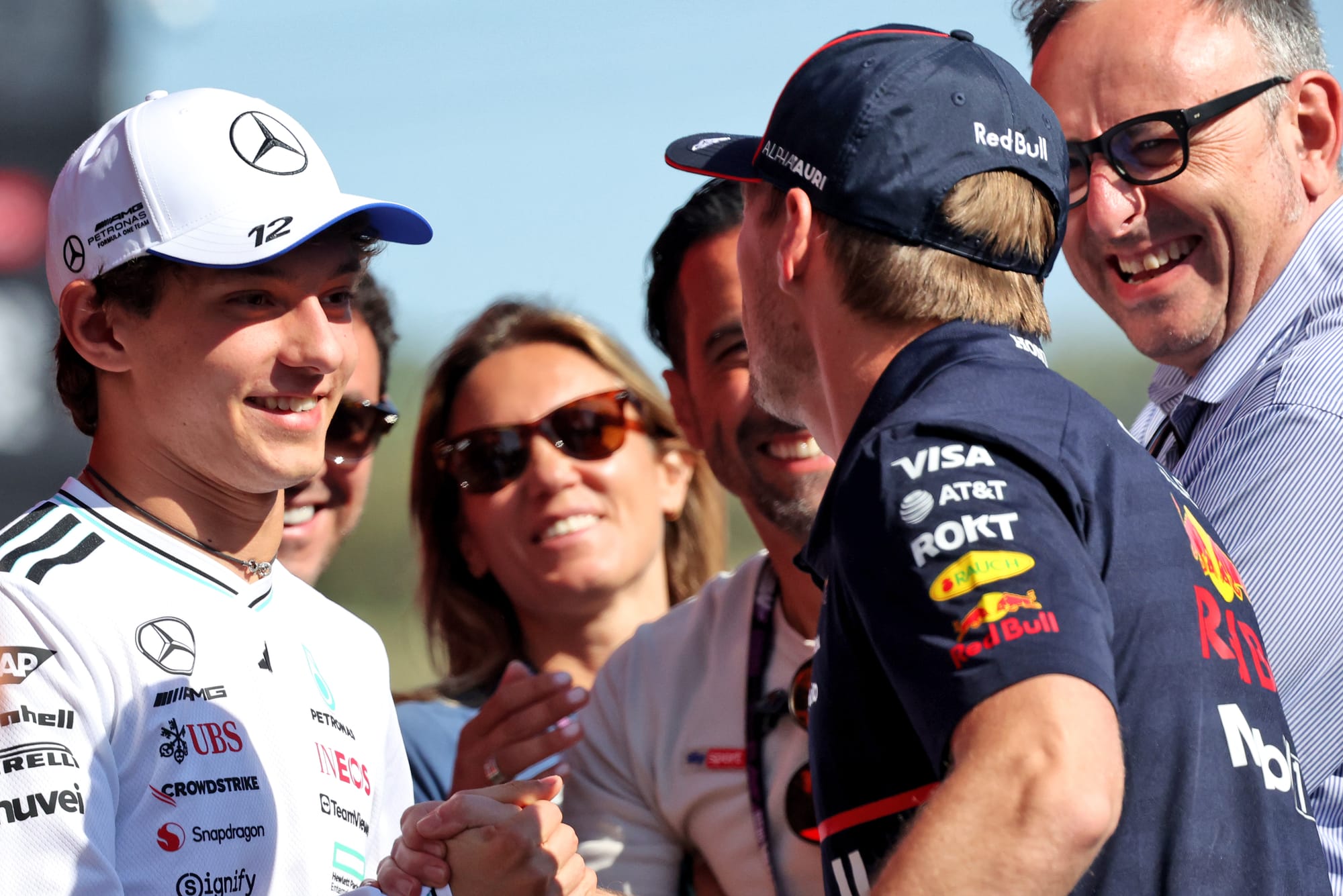
In one sense Antonelli has already been set up to fail by his team boss comparing him to a generational talent whom Wolff himself publicly coveted and tried to sign.
But there are other problems for Antonelli too. It’s not that he hasn’t produced any stunning highlights of his own - that drive to fourth on debut in the wet of Melbourne was superb, as was his sprint pole position in Miami, plus that podium finish when the 2025 Mercedes was at its best in Canada.
It’s not even the fact he’s been generally slower than his team-mate. Verstappen too lost the Toro Rosso intra-team qualifying battle to fellow rookie Carlos Sainz, who to be fair had significantly more than Verstappen’s one prior season of experience in single-seaters behind him before graduating to F1.
Antonelli’s racing for a top team in his first season - the “mammoth”, as Wolff puts it - so can’t make his mistakes in a lower-pressure environment, and indeed there is perhaps a greater likelihood of mistakes in the first place under that added pressure to perform.
But there’s also the fact he’s replaced the most successful driver of all time in Lewis Hamilton, a tough act to follow in itself, then the fact Antonelli is being benchmarked against Russell - a driver who proved himself every bit as fast, if not faster, in the same team as Hamilton over their three seasons together.
Russell hasn’t won a world championship, never mind four or seven of them, but he would be in most experts’ top five drivers on the current grid and perhaps in the top two or three for this season based on his current performances.
Sainz was very good, but he wasn’t at that level in his first F1 season. And he was a rookie, same as Max, so Verstappen arguably had a much easier ride than Antonelli is having in that respect.
Verstappen was undoubtedly the outstanding rookie of 2015, even though Sainz ran him close in the same team.
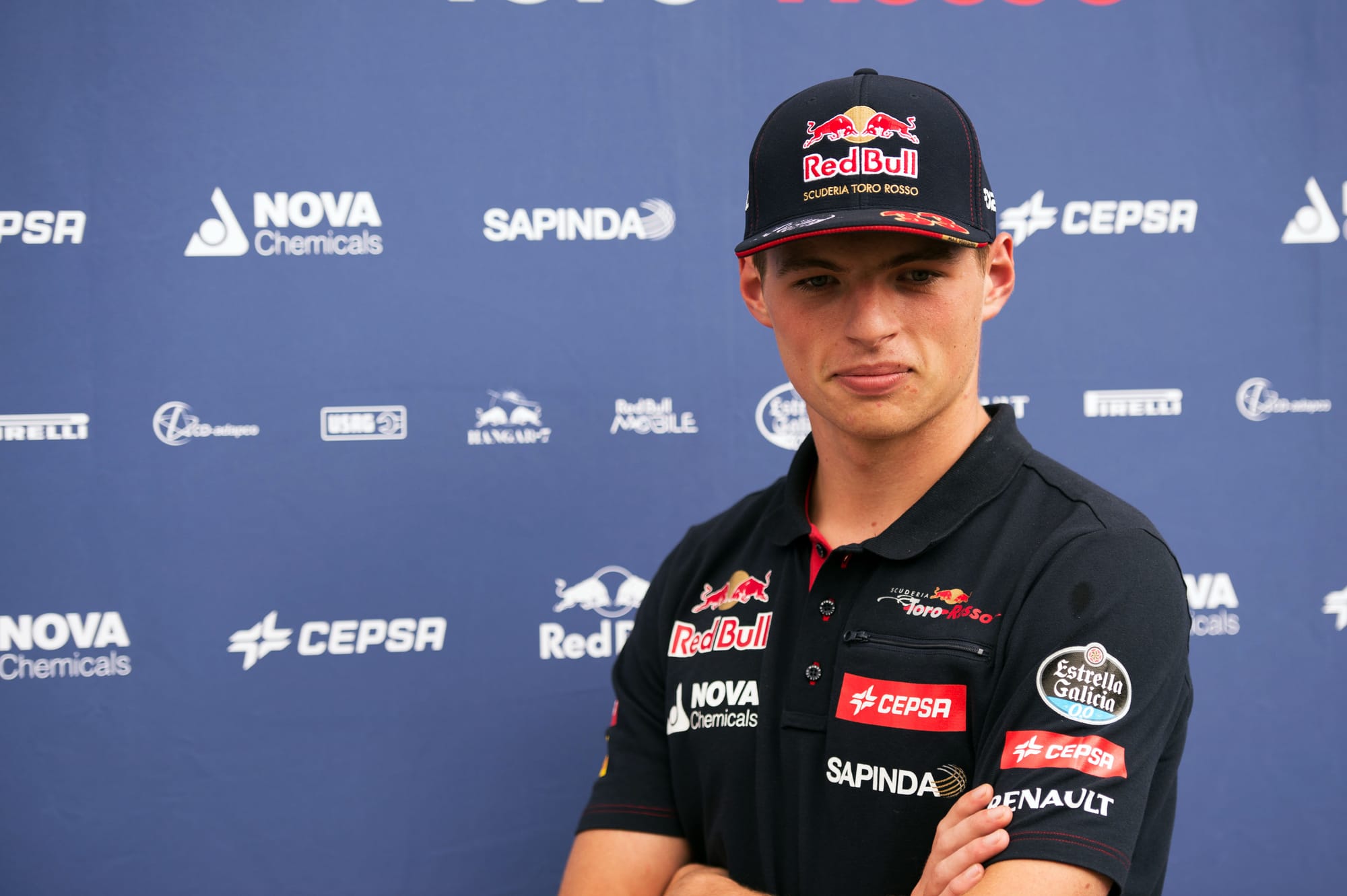
Antonelli is being upstaged in 2025 by another rookie: Racing Bulls’ Isack Hadjar, who is coming off his own first podium finish in the Dutch GP and looks likely to become Verstappen’s new Red Bull team-mate in 2026.
It’s not a good look for Antonelli that Hadjar is the talk of the F1 paddock right now. But at the same time, how good is Hadjar really? We cannot know until he’s thrown in against Verstappen.
Yuki Tsunoda, Liam Lawson, Alex Albon and Pierre Gasly before him all looked pretty handy in the second team but got chewed up and spat out by Red Bull Racing up against Max.
Gasly went on to become a grand prix winner for the junior team and is now Alpine’s team leader, while Albon looks every bit a match or more for Sainz at Williams.
Tsunoda and Lawson are most likely much better drivers in reality than they have looked against Verstappen in a car that clearly is very specific in its characteristics, is very attuned to Verstappen’s particular way of driving, but also is just not particularly good at the moment.
That said, even if Tsunoda and Lawson aren’t top level drivers after all, they are the only benchmark Hadjar has had in F1 so far. All we can say with certainty is that Hadjar's compared favourably against both of them despite having much less F1 experience.
In a parallel universe, it could be Hadjar struggling against Russell in a difficult Mercedes while Antonelli looks to have the world at his feet because of some giant slaying performances in a very driveable and user-friendly Racing Bulls that isn’t expected to win races or challenge for podiums.
It could be that the 2025 Mercedes is similar to the 2025 Red Bull - difficult to drive and just not that good, but Russell is better able to make it work than Antonelli because of his greater experience and comfort within the team, allied to his formidable skill and self-confidence.
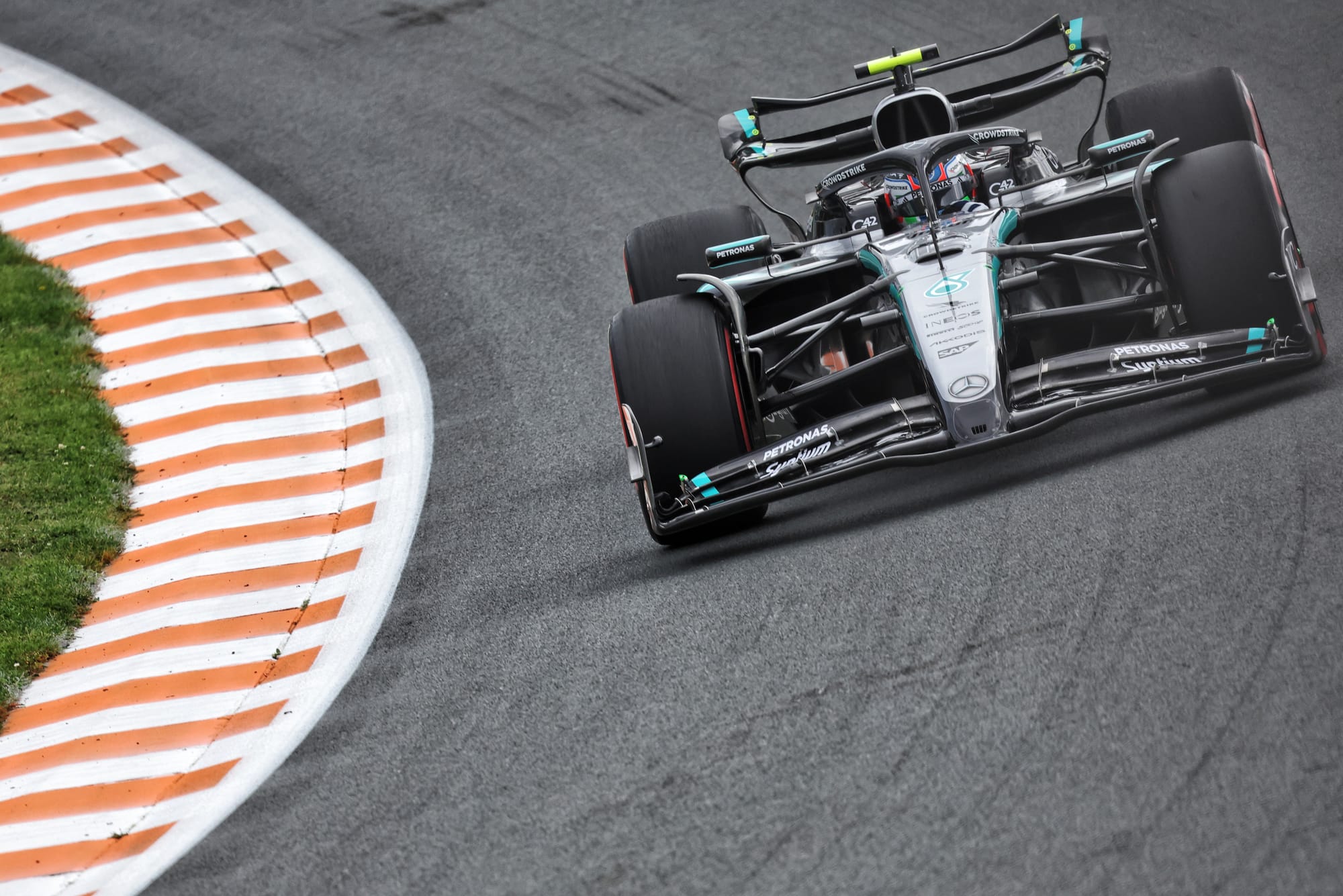
This is where Wolff’s claim has most merit - it’s situational, and then it’s about whether that situation is correct or not for maximising the performance of the driver.
What Verstappen was able to do next was jump into Red Bull's main team and immediately challenge the incumbent benchmark in Daniel Ricciardo, eventually dethroning him as Red Bull's team leader.
Had Verstappen not accomplished that, his F1 career would likely have run aground, but instead he made Red Bull his own and drove on to incredible success.
Antonelli may well be capable of the same. Mercedes certainly thinks so, based on what Wolff repeatedly says. But Antonelli won't get there without somehow trampling over Russell first.
Time to admit too much too soon?
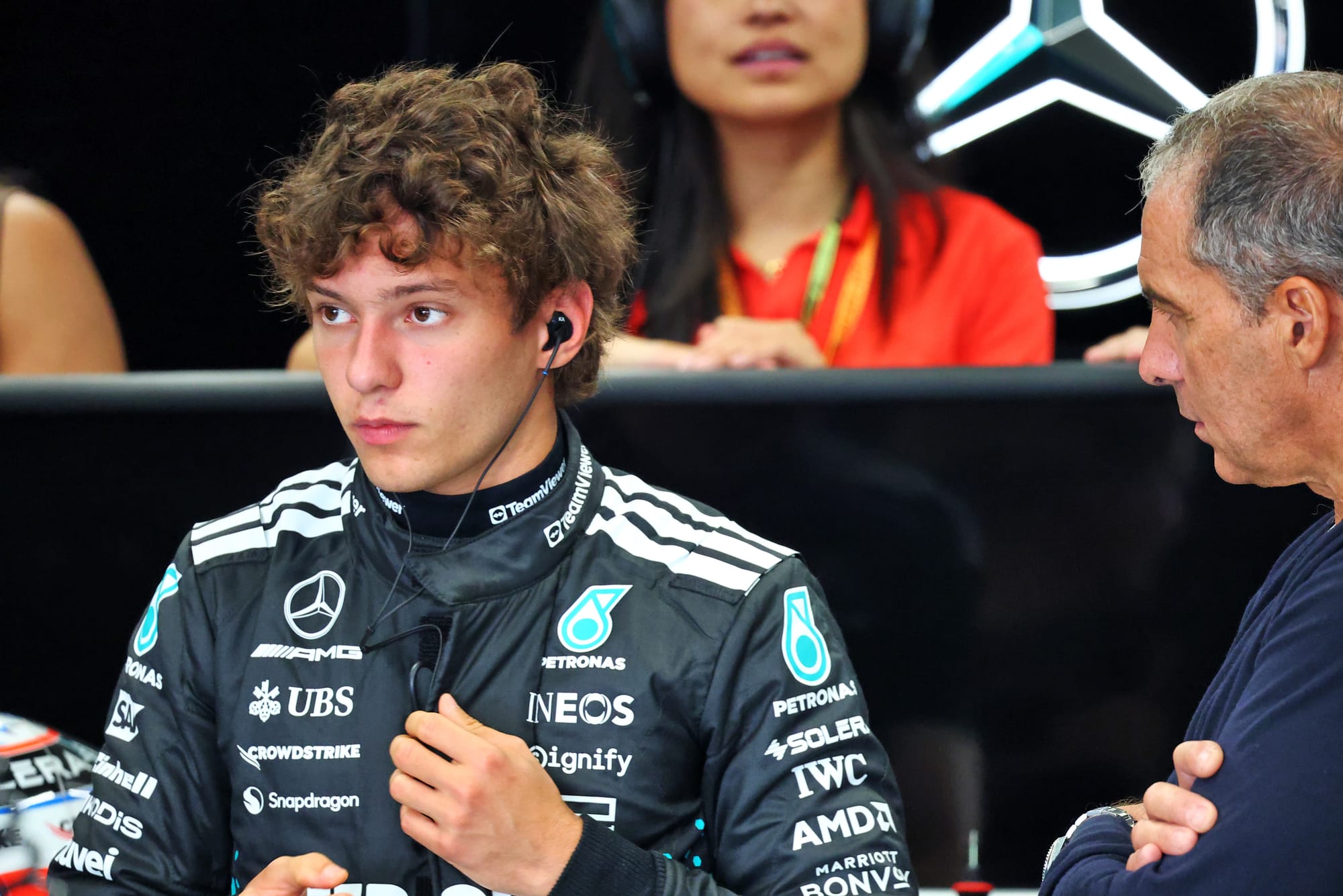
Red Bull won the race to sign Verstappen because it was uniquely placed to accelerate his path to F1. But it still gave him 23 races in the junior team before sticking him up against Ricciardo in the same car.
More than the fact Verstappen then won (rather fortuitously) on his Red Bull debut in Spain, it was Verstappen’s immediate qualifying speed compared to Ricciardo - who only got the better of Verstappen at the very end of Q3 at Barcelona - that convinced Red Bull its decision to demote Kvyat immediately, just four races into 2016, was the correct one.
The circumstances at Mercedes are completely different. There are partner teams it can lean on, but no junior squad it can dictate terms to. Hamilton also somewhat forced Mercedes’ hand in 2024 by opting to walk away one year earlier than expected and before he’d even begun racing the first year of the two-year contract he signed to stay on!
But Mercedes could still have recruited an experienced free agent like Sainz and worked to place Antonelli at somewhere like Williams - ambitious but still building for the future - to better prepare him for the big league.
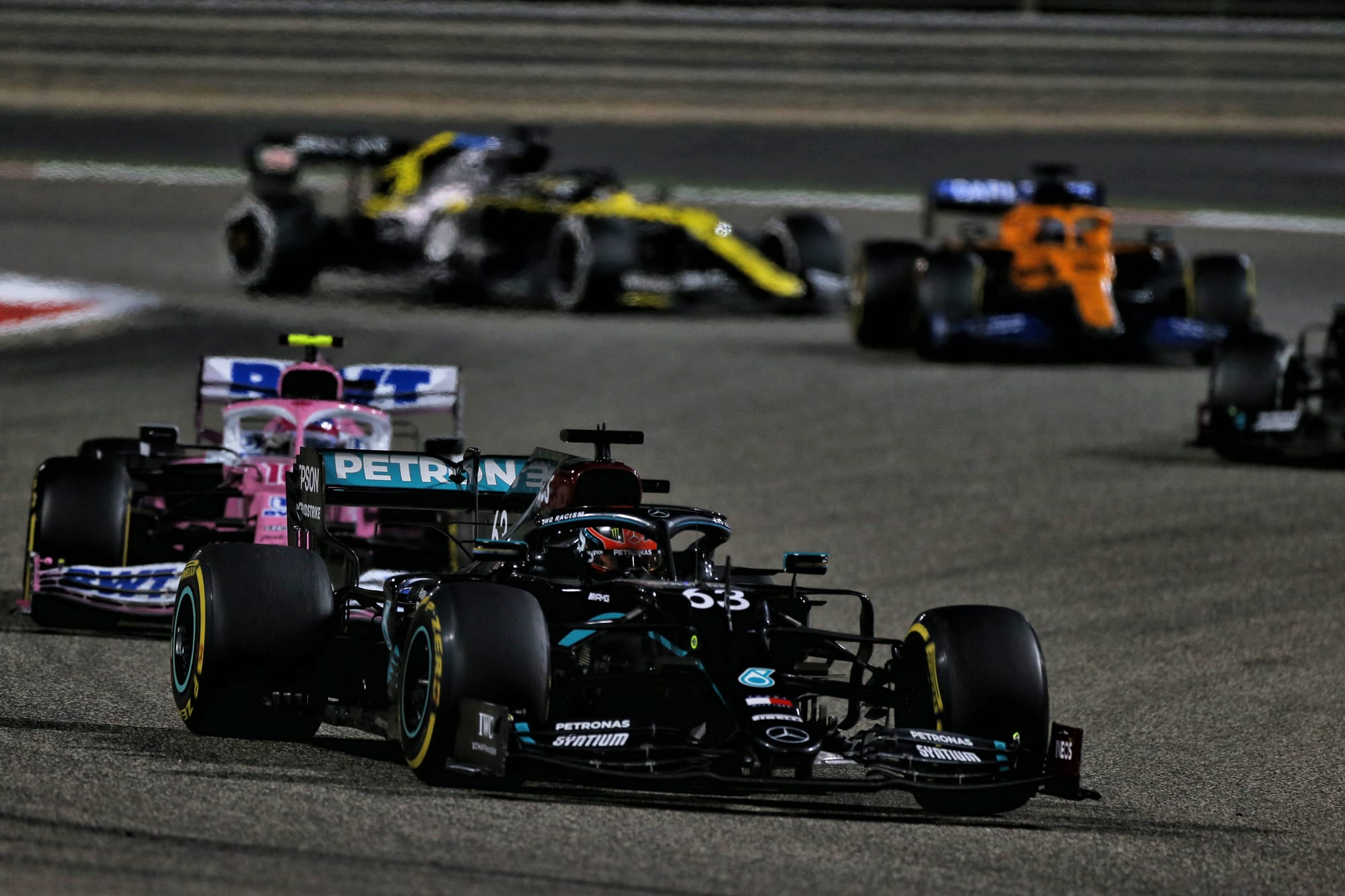
Wolff waited a bit too long with Russell, as his almost-victorious 2020 Mercedes debut alongside Valtteri Bottas at Sakhir proved, but those learning seasons with Williams were still invaluable in helping Russell build his own foundation quietly: making mistakes under less pressure, learning from them, figuring out how to conduct himself, adjusting how to communicate with the team in the right way, countless other intangibles that meant he was a more rounded driver when it came to crunch time against Hamilton in 2022-24.
It’s hard to escape the feeling that Mercedes wanted to almost one-up Red Bull by doing what it refused to do with Verstappen all those years ago, when it would have had to bin race winner and future champion Nico Rosberg to make space, so offered Max only a fully funded season in GP2 instead.
It’s good that Wolff believes so wholeheartedly in Antonelli’s raw ability. But ‘raw’ is the key word there, and maybe this has been too much too soon for a driver who is clearly very good, but is consistently struggling to show the best of himself.
In terms of so-called ‘big mistakes’, the tally for Antonelli is probably about even with Verstappen. There was the first-lap torpedoing of Max in Austria, which led to a grid penalty. We can chalk that up as Antonelli’s Monaco 2015.
And at Zandvoort he wiped out Leclerc and picked up a time penalty, costing Mercedes a double top-six finish most likely. Let’s call that one Antonelli’s Silverstone 2015 (even though his involved another car and Max’s didn’t).
That’s it really, save for the spattering of practice setbacks he’s had. Reliability has cost him at times too, but that was the same for Verstappen in 2015 - when Renault engines were so bad Toro Rosso opted for year-old Ferrari power units the following season!
And whenever Verstappen did suffer a rare setback in 2015, he usually immediately followed up with a superb performance that dispelled the negatives.
Antonelli’s problem right now is that he’s stuck in a negative spiral. Yes, the car has been difficult - particularly in the period when Mercedes unexpectedly downgraded its rear suspension - but equally, Antonelli has admitted he was unable to adapt his driving to that change - something that is usually a hallmark of the very best drivers.
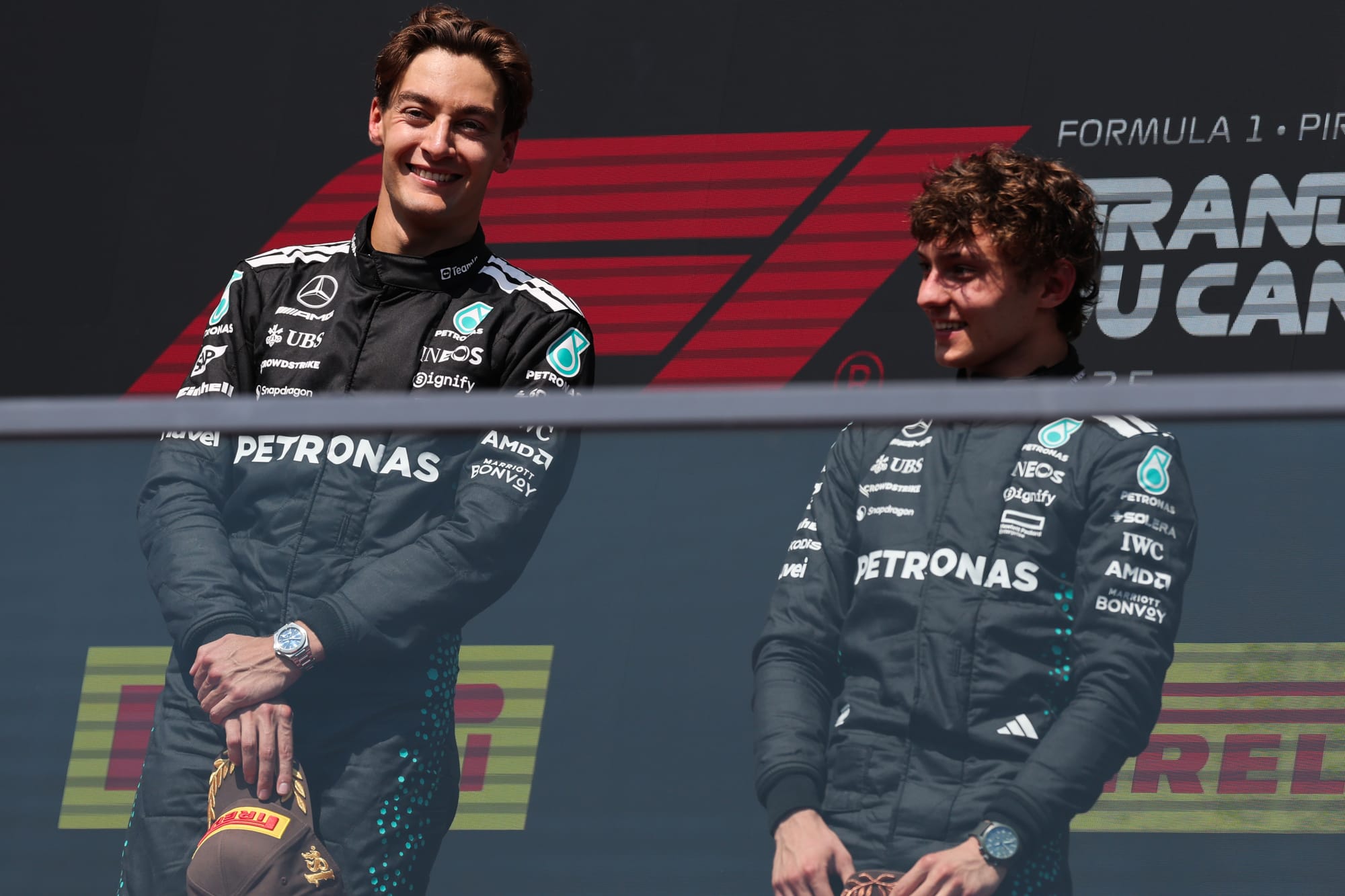
Moreover, since that Montreal podium it’s just been a sequence of disappointing weekends from the rookie - either struggling for pace, or failing to convert what pace he showed into decent results.
Russell has accumulated 48 more points since winning the Canadian Grand Prix and lies fourth in the world championship, just 21 points behind Verstappen. Antonelli’s tally since that race stands at a solitary point, for 10th place in Hungary. He sits seventh in the championship with just 35% of Russell's points total, and level with Alex Albon's midfield Williams.
It should be said that F1 in 2025 is more competitive in terms of field spread than it was in 2015, when the new V6 hybrid turbo cars were only in their second season and many people were complaining they were too slow compared to the junior categories.
The 2025 ground effect machines are entirely different beasts - heavier, much much faster, and clearly quite particular in the way they need to be set up and driven.
But given how well the likes of Hadjar and Sauber’s Gabriel Bortoleto have adapted straight out of F2, despite no real F1 testing programme to prepare them, it’s difficult to then argue that Antonelli has been let down by a lack of preparation.
Wolff describes Antonelli as a “fierce competitor” and a “monster” when the visor goes down, but also a kid with maturity beyond his years who “acknowledges shortcomings”.
“We just need to give them [the drivers] a car that is a little bit less tricky to drive,” Wolff added. “That you don't need to push on the edge all the time and make these mistakes.
“And in a way why we're taking it [Antonelli's mistakes] with a certain easiness is that we're not fighting for a world championship - we're fighting for P2 and P3, and we owe it to give it the best shot for ourselves, but I can cope with it easier than if it was for a championship.”
The subtext there is that Mercedes won’t be so forgiving if, as it hopes and expects, its 2026 car is capable of fighting for the championship again.
But in the meantime, while Antonelli is still making mistakes that Mercedes is so ready and willing to forgive and excuse, it might help if Wolff stopped comparing his rookie driver to Verstappen.


